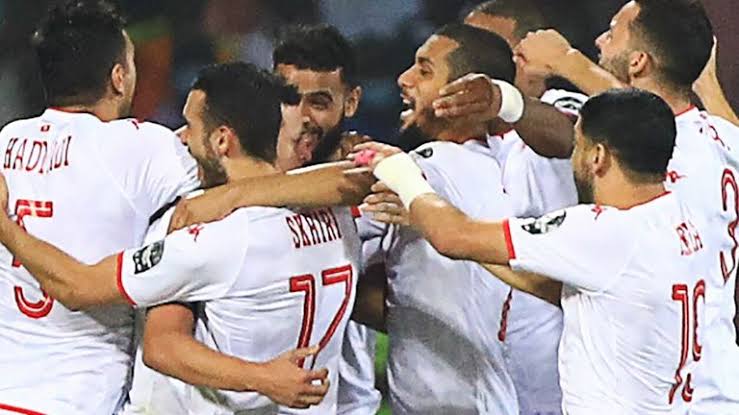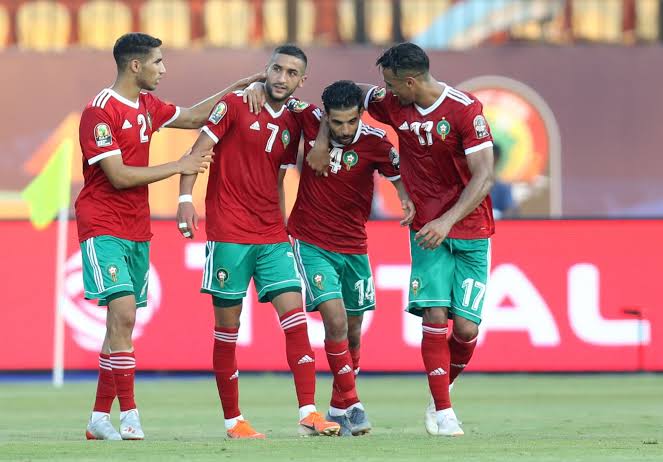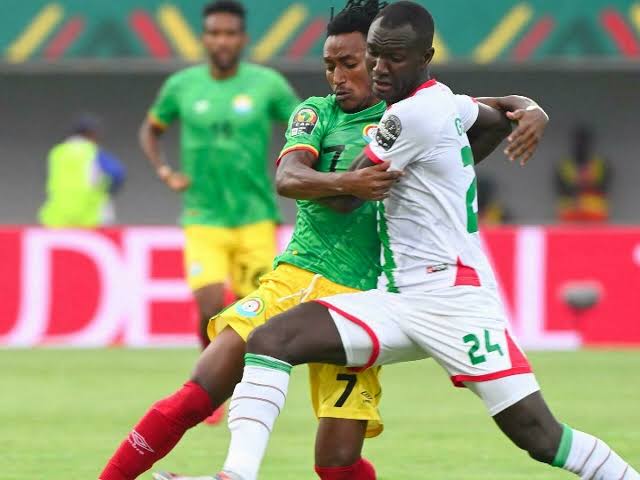By Agency Reports
After a group stage and Last 16 characterised by narrow score lines, the Africa Cup of Nations quarterfinals could see a couple of shock results emerge this weekend, with the action continuing as scheduled despite the Stade d’Olembe tragedy.
On the field, the tournament brought drama, excitement, and no shortage of controversy as the group stage unravelled and gave way to the gripping Last 16. Almost every game has provided tension and intrigue — even if referees and VAR have been a little too prominent in the discussions.
Even the questionable interventions, the suspicious oversights, the speed at which red cards have been whipped out haven’t (completely) detracted from the fairytale stories, the unexpected results, and the edge-of-your-seat thrill of elimination football.
On paper, two of the quarterfinals appear to be mismatches, but the tournament has demonstrated that the big boys can come unstuck against would-be minnows, and while individual talent alone can get you so far, the strength of the collective has been apparent to Ghana, Algeria and Nigeria.
Gambia vs Cameroon, Douala, Jan 29
Gambia’s achievement in reaching the tournament alone was remarkable, while their performances in Cameroon — victories over Mauritania, Tunisia and Guinea, drawing with Mali — have represented the all-time greatest moments in the nation’s sporting history.
There’s no doubt that Saturday’s quarterfinal against Cameroon is the biggest match Gambia have ever contested, but their mentality, tactical approach, and the sterling work of head coach Tom Saintfiet leave them perfectly placed to give the hosts a run for their money and perhaps even register an almighty AFCON shock.
After a troubled build-up to their clash against Guinea, with the Gambia camp complaining about their accommodation and the way they had been left to deal with their coronavirus cases, they’ve reported a clean bill of health heading into this one…
Can Saintfiet’s strategy — inspired by the team’s Scorpions nickname — to remain coiled, compact, conservative until the dying embers of the game, then strike late with a sting in the tail, see the tiny West African minnows through yet past another major challenge?
Is there a sense of favoritism surrounding Cameroon?
Ed Dove discusses whether there is concern from other teams that there is more favoritism with the Cameroon team in AFCON.
They’ll be hoping that Cameroon’s defensive failings — they’ve conceded in every game so far, including against a Comoros side without a goalkeeper — can be exploited, although the Indomitable Lions have the kind of attacking options to hurt Gambia that none of their opponents so far have been able to call upon.
With Vincent Aboubakar in the form of his life and dovetailing well with Eric-Maxim Choupo Moting, with Collins Fai providing width on the right, and with Andre-Frank Zambo Anguissa providing thrust from the midfield, Cameroon have the quality to end the minnows’ historic campaign.
On the field of play, however — and particularly on the maligned turf at the Stade Japoma in Douala — things may not be so straightforward for the Afcon hosts.

Burkina Faso vs Tunisia, Garoua, Jan 29
These two limped into the knockout stages after underwhelming and unconvincing group-stage displays, with Tunisia labouring their way through Group F, with a thumping victory over Mauritania the only thing saving them from elimination.
However, after a sense of injustice fuelled their early performances in the competition, both will feel they’re picking up momentum heading into this fairly even quarterfinal.
After their losses against Mali — overshadowed by Janny Sikazwe’s referreeing and the touchline fury of their coaching staff — and Gambia, it was a surprise when Tunisia were able to ride out Nigeria’s early onslaught in their Last 16 meeting in Garoua and ultimately see off the Super Eagles.
Defensive resiliency, midfield neutralisation, and a control of emotions were all central to that triumph against much-fancied Nigeria, and with veterans Youssef Msakni and Wahbi Khazri both likely to be available from the off against the Stallions, the Carthage Eagles should have some bite as well.
That match in Garoua was only the second knockout game Tunisia have won in regulation time at the Nations Cup since defeating Morocco to win the title on home soil in 2004, and it will give them a major boost as they look to advance to the final four for the second consecutive campaign.
Burkina Faso, like Tunisia, were also motivated by a sense of injustice in the group stage, with Bertrand Traore denouncing as ‘scandalous’ the side’s coronavirus testing treatment ahead of their opener with Cameroon.
Their lack of experience showed during their opener against the hosts, but after they got the better of Gabon in their exhausting, exhilarating Second Round bout, there will be a sense of momentum about the Stallions.
Can captain Traore, so clearly a cut above his teammates but yet so prone to costly lapses, harness his undeniable talent and inspire the Burkinabe to their third semifinal in five editions?

Egypt vs Morocco, Yaounde, Jan 30
The pick of the quarterfinals is this absolute blockbuster bout between North African giants Egypt and Morocco at the Stade Ahmadou Ahidjo, where one side with genuine title ambitions will fall by the wayside.
The Atlas Lions — despite encountering injuries and coronavirus cases during the early days of the tournament — have been overt about their aims of winning the big one, and despite not having gone beyond the quarterfinals in 18 years, they’ve become increasingly convincing.
In the likes of Sofiane Boufal and Achraf Hakimi – who’s netted magnificent free kicks in their last two matches – they have genuine match-winners, and it’s surely only a matter of time before an attacking unit containing Ayoub El Kaabi, Youssef En-Nesyri and Ryan Mmaee finds more precision in their finishing.
Despite the absence of Hakim Ziyech, the Lions are creating no shortage of chances, and while they may not have been made to pay for missing them against Comoros or Malawi, the same may not be said against Egypt.
After a fairly stodgy group stage — and an opener in which they were blown away by Nigeria — the Pharaohs hit a different gear in their Last 16 victory over the Ivory Coast.
Mohamed Salah’s Egypt have the toughest AFCON quarterfinal, against fellow North Africans Morocco. Visionhaus/Getty Images
Helped, doubtless, by Franck Kessie’s early exit due to injury, the Pharaohs took 21 shots throughout the course of the contest — not bad for a team supposedly over-reliant on Mohamed Salah — and held their own against a stacked Ivorian midfield.
Both Carlos Queiroz and Vahid Halilhodzic have notable achievements in knockout competitions, and both are managing the rigours and routines of tournament football with expertise as their sides grow into the AFCON so expect an engrossing tactical battle.
Morocco may have greater quality in almost every area on the pitch, but this is Egypt, and this is Salah, so nothing can be taken for granted.
Senegal vs Equatorial Guinea, Yaounde, Jan 30
Both of these two survived – albeit bruised – from Last 16 bouts against Cape Verde and Mali respectively, with Senegal talisman Sadio Mane replaced early after a collision with goalkeeper Vozinha, and Equatorial Guinea’s match being the subject of a formal complaint by the Eagles.
The Equatoguineans can indeed count themselves lucky that VAR appeared to decree in their favour in their last match, although their ascent to the quarterfinals has been down to much more than luck.
Ranked outside the FIFA top 100 in December, their performance at the Nations Cup shouldn’t come as a massive surprise to anyone who witnessed their encouraging World Cup qualifying campaign — they defeated Tunisia in November — and they’re benefiting from an influx of players playing in the lower leagues of France, Spain and Italy.
READ: Everything you need to know about AFCON
The likes of Jose Machin and Pablo Ganet allowed them to hold their own in a battle against Brighton & Hove Albion’s Yves Bissouma and Mohamed Camara of Red Bull Salzburg in the Mali game, and expect a similar story against Senegal.

Senegal’s decision to allow Mane to initially play on against Cape Verde has been criticised — even if he did break the deadlock — but the Teranga Lions will be desperate for him to be back at 100 percent and firing on all cylinders for their Last Eight clash.
The West Africans have lots of speedy dribblers, and players who can strike at goal, but they lack guile and creativity, placing immense burden on Mane’s shoulders.
When he plays on the left – as he did against Cape Verde – Senegal’s play is funnelled through him and they can become easy to neutralise, but Aliou Cisse’s seeming unwillingness to sacrifice any of his three defensive midfielders means that you shouldn’t expect anything too different from the Lions.
What they do have is defensive resiliency, and a unit containing Edouard Mendy and Kalidou Koulibaly, protected by that midfield, makes them favourites to go the distance in the competition.